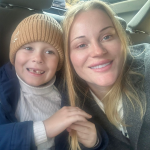Why Do Children with Autism Not Sleep at Night?
Nighttime insomnia becomes a real challenge for parents of children with autism or ASD. This issue can be periodic or systemic. Often, there are difficulties with falling asleep or inexplicable wake-ups in the middle of the night. If a child starts experiencing sleep problems, it is recommended to consult a pediatric neurologist.
Causes of Insomnia in Children with Autism and ASD
- Sensitivity to stimuli: Children with autism are often more sensitive to light, sounds, smells, or textures. This can make it difficult to fall asleep or cause them to wake up in response to these stimuli.
- Sensory processing disorders: Some children with autism may have sensory processing disorders that affect their ability to sleep. For example, they may seek out or avoid certain sensory stimuli.
- Disrupted sleep-wake rhythms: Children with autism may experience disrupted sleep-wake rhythms due to biological aspects of their disorder or imperfect sleep regulation.
- Communication problems: Some children with autism may struggle with communication and emotional self-regulation, which can affect their ability to calm down and fall asleep.
- Coexisting medical issues: Some children with autism may have other medical conditions, such as pain or digestive disorders, which can interfere with sleep.
Effective Ways to Improve Sleep Quality in a Child with Autism
- Establishing a regular sleep schedule: It is important to create a stable daily routine with fixed times for sleep and waking. This helps to establish biological rhythms and ease falling asleep.
- Creating a calm and cozy environment: Ensure a quiet and cozy sleep environment. The bed should be comfortable, and the room should be free of bright lights and distractions.
- Soothing bedtime rituals: Develop rituals that signal bedtime is approaching. This could include reading a book, listening to calming music, gentle massages, or other relaxing activities.
- Avoiding stimulating factors: Limit screen time and avoid active games or stimulating activities before bed to help the child relax.
- Diet and physical activity management: Ensure the child gets sufficient physical activity during the day but avoid intense physical exercise close to bedtime. Also, pay attention to their diet, avoiding heavy meals and stimulating drinks.
- Consulting specialists: Consulting a doctor or autism specialist can help create a personalized sleep support plan, including the possible use of medications if necessary.
- Supporting self-regulation: Children with autism may have difficulty with emotional self-regulation. Help the child find methods of self-regulation, such as breathing exercises or meditation, that can help them relax before sleep.
Stem Cell Transplantation – Modern Treatment for Autism in Children
Solving insomnia issues in children with autism and autism spectrum disorders requires a comprehensive therapy approach under the constant supervision of specialists. The Mardaleishvili Medical Center monitors patients who have undergone stem cell transplantation. Tests show that within the first 3 months after the procedure, young patients make tremendous progress. This is supported by both cognitive and psychological tests. Most importantly, the child becomes calmer, learns to control emotions, and issues like nighttime enuresis and insomnia disappear. To date, this is one of the most effective autism therapies in the world.
Safe and effective treatment for insomnia in children with autism exists!
Autism Treatment Center Videos
Autism treatment with own stem cells
Cord blood association congress
International Quality Crown
Autism Treatment Reviews
Autism treatment with own stem cells
The story of Alessandro (6 years old)
Autism Patient Testimonial - Stem Cell Treatment
Clients Testimonials

Review by Anastasia, mother of Yusup (8 years old) Read More

Feedback from Nathalie, mother of Andre (9 years old) Read More

Feedback from Yulia, mother of Emily (7 years old) Read More

Feedback by Everita, Katrina’s mother (5 years old) Read More

Feedback from Igor, David’s father (12 years old) Read More












